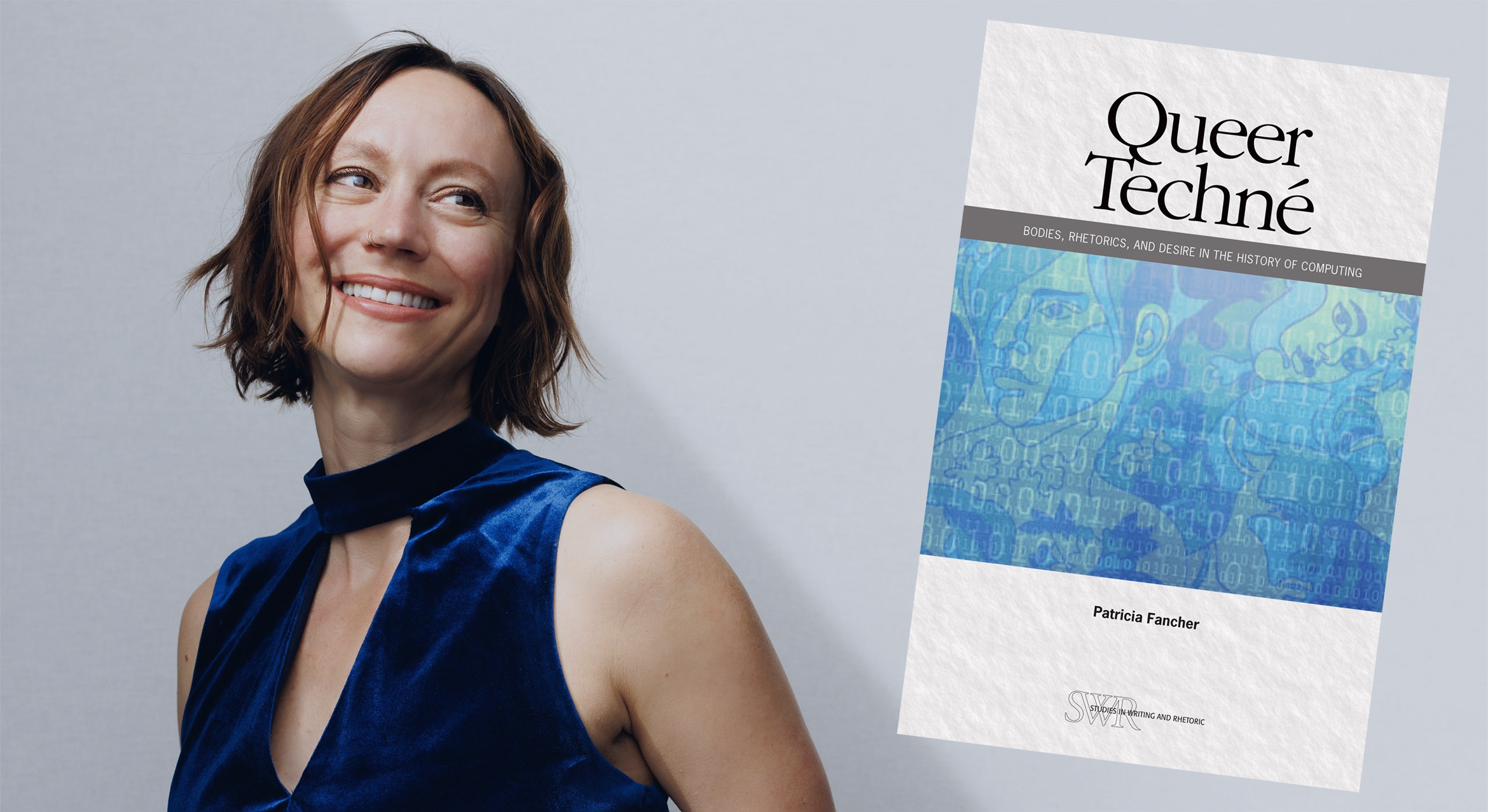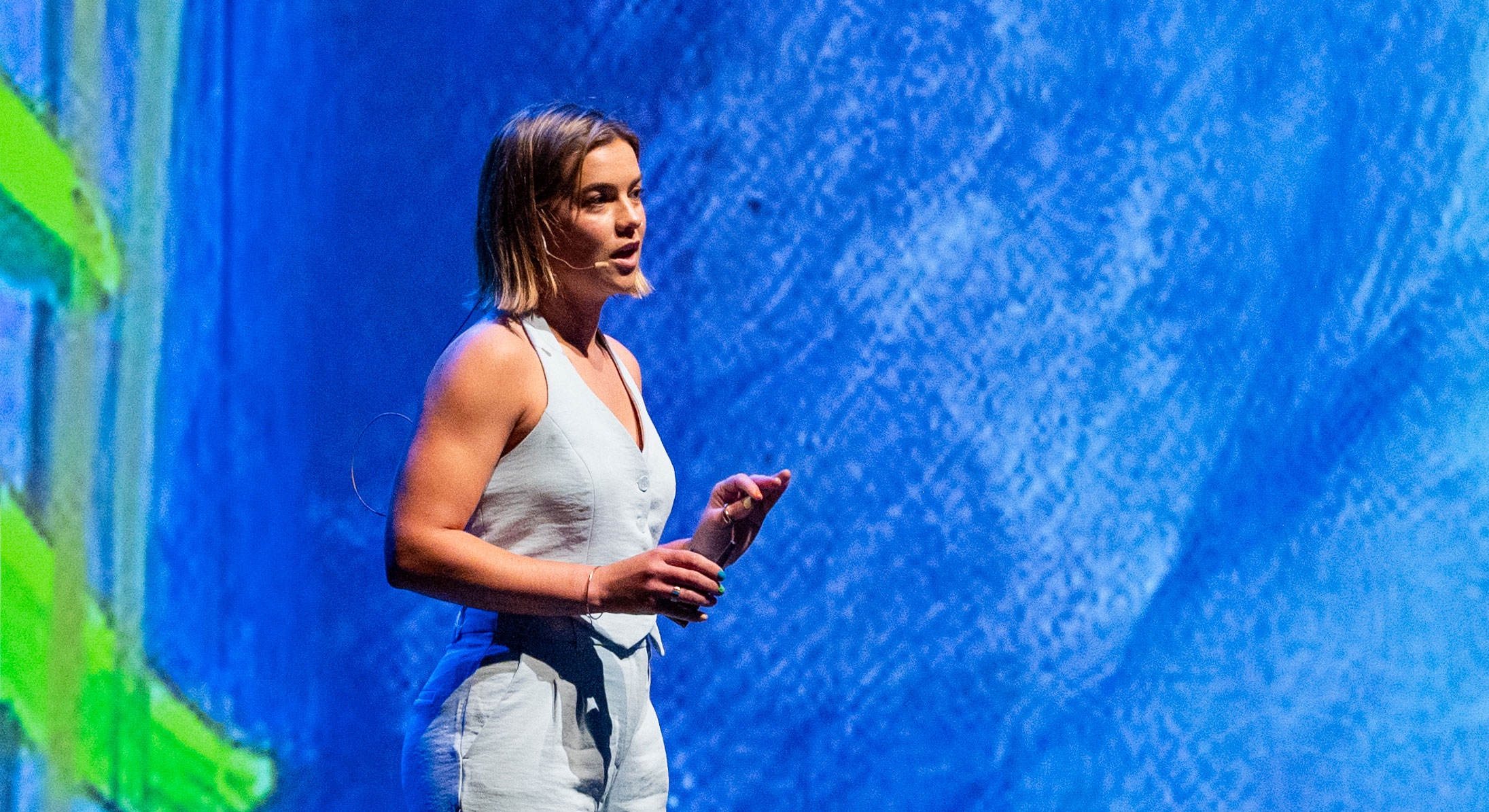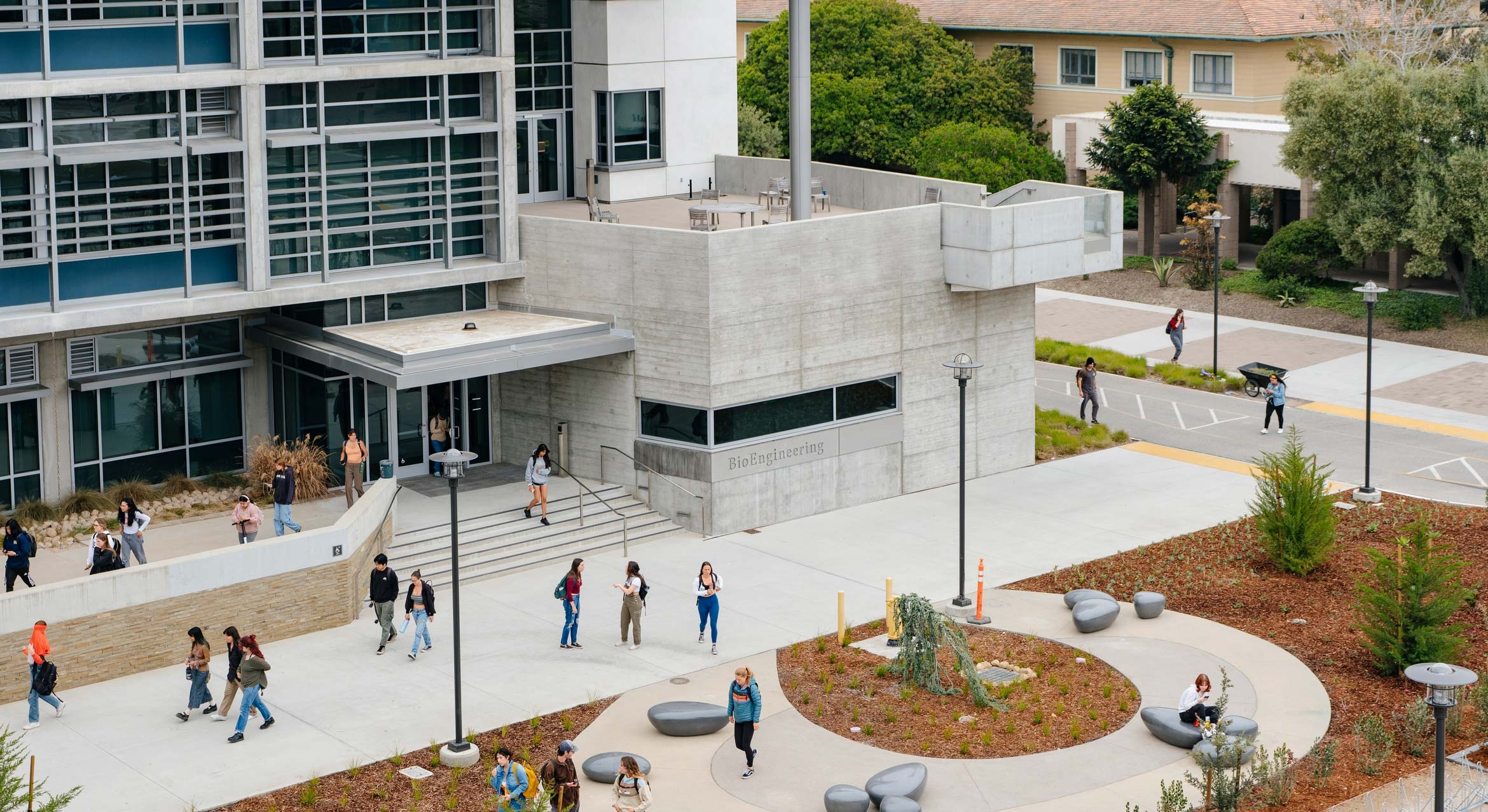
New book explores gay, queer and feminist community at the heart of early advances in computer science
Feeling a bit lost during the summer after her first year in grad school, Patricia Fancher spent a few weeks couch surfing in New York City. One afternoon in a museum, she was struck by an exhibit by the Danish collage and sculpture artist Henrik Olesen, “Some Illustrations to the Life of Alan Turing.” Oleson’s work would plant the seed for Fancher’s dissertation, which later served as the launching point for a deeper take on Turing and his colleagues — one that would blend her interests in media and tech with feminist and queer theory. Fancher’s debut book was born.
“Queer Techné: Bodies, Rhetorics, and Desire in the History of Computing” (NCTE Publications 2024) covers the depth of technical and scientific writing of Turing, who is credited as a foundational inventor of computing, while placing his achievements in the context of his close network of women and queer collaborators.
“I knew I wanted to study something that allowed me to think about queer sexuality, embodiment and technology, but I wasn’t sure how to tie together all the different ideas I cared about,” said Fancher, a lecturer in the UC Santa Barbara Writing Program. “Olesen’s work helped me see how Turing’s life as a gay man and his theories about machine intelligence could be interesting. As I learned more, I began thinking of the complex ways that Turing’s life reflected important points of overlap between performance and authenticity, creativity and science, body and mind, human and machine.”
Along the way, Fancher discovered that Turing was not an isolated genius. His work, she found, was “sustained through community, namely a network of queer friends who were all mathematicians and computer scientists.”
“In the book, I use Turing as a thread that helped me to connect to his larger social network, and I also incorporated the community of women computer scientists and engineers whose labor was so important for the invention of computers,” she added. “The great breakthroughs that Turing contributed to computing — such as his work on digital computers and his innovative thinking on artificial intelligence — all emerged in and through communities.”

This broader community of collaborators and contemporaries included software engineer Cicely Popplewell, who, Fancher writes, was hired as an assistant to Turing but she had a long career and deep expertise especially with early computer programming. There’s also gay men, such as Christopher Strachey, whose excitement for gaming, artificial intelligence and how computers may someday express emotion kept him up at night.
“For scholars who study technical writing and the history of computers, my book adds an element of intimacy and care,” said Fancher, who has a PhD in rhetoric from Clemson University and has been teaching writing at UCSB since 2014. “For my feminist and queer theory colleagues, I hope my book will open up new directions for research — queer feminist communities are located in some unexpected places, including STEM fields that we associate with being very male-dominated and heteronormative.”
Fancher will share research methods and highlights and field questions about the book on Friday, May 3; the event is free and open to the public.
Keith Hamm
Social Sciences, Humanities & Fine Arts Writer
keithhamm@ucsb.edu



